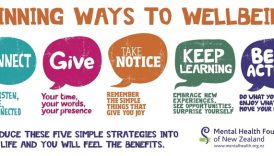Embark on a Journey to Better Health with Your Personal Journal

Importance of Personal Journaling
Personal journaling serves as a profound tool for self-reflection and emotional clarity. Individuals often find themselves overwhelmed by the rush of daily life, and journaling provides a haven to unpack thoughts and feelings. For instance, writing about personal experiences can illuminate patterns and aid in understanding one’s emotions. Consider this: spending just 10 minutes at the end of each day to jot down events and feelings can lead to significant insights about one’s behavior and choices.
- Embark on a Journey to Better Health with Your Personal Journal
- Importance of Personal Journaling
- Benefits of Keeping a Health Journal
- Setting Goals
- Defining Your Health Goals
- Establishing Action Steps
- Tracking Progress
- Monitoring Daily Habits
- Keeping Record of Achievements
- Reflecting on Challenges
- Identifying Obstacles
- Strategies for Overcoming Setbacks
- Cultivating Healthy Habits
- Incorporating Exercise Routine
- Nourishing Your Body with Nutritious Foods
- Mental Well-being
- Practicing Mindfulness and Meditation
- Managing Stress Levels
- Building a Support System
- Seeking Encouragement from Loved Ones
- Joining Wellness Communities
- Celebrating Milestones
- Acknowledging Small Wins
- Rewarding Yourself for Progress
- Reviewing and Adapting
- Evaluating Journal Entries
- Adjusting Goals as Needed
- Sustaining Healthy Lifestyle
- Making Journaling a Habit
- Continuing Your Health Journey
Benefits of Keeping a Health Journal
Keeping a health journal primarily focuses on documenting one’s physical and emotional well-being. The benefits are manifold:
- Enhanced Awareness: Tracking symptoms or moods helps in recognizing trends and triggers.
- Goal Setting: By documenting aspirations, individuals can define and refine their health goals.
- Accountability: A health journal encourages commitment to personal health journeys.
In essence, maintaining a health journal not only fosters accountability but also enhances self-awareness, ultimately guiding individuals toward a healthier, more fulfilling lifestyle.
Setting Goals
Defining Your Health Goals
Once personal journaling is established, the next step is defining clear health goals. This can be a transformative process, as it allows individuals to visualize what they aim to achieve. For example, someone might decide to focus on their mental well-being by aiming to practice mindfulness daily or to improve their physical fitness by committing to regular exercise. Here are a few tips for defining health goals:
- Be Specific: Rather than saying “I want to be healthier,” aim for “I want to exercise three times a week.”
- Make it Measurable: Ensure you can track your progress, like “I want to drink eight glasses of water daily.”
- Set Achievable Goals: It’s important to set goals that are realistic within your current lifestyle.
Establishing Action Steps
Once goals are set, it’s essential to break them down into actionable steps. For instance, if the goal is to exercise three times a week, consider creating a weekly schedule detailing exactly when and what type of exercise will occur. Here’s an example of action steps:
- Choose Activities: Decide on forms of exercise you enjoy—yoga, running, or dancing.
- Schedule Workouts: Set aside specific days and times for your workouts.
- Prepare Equipment: Lay out your workout clothes the night before or plan your meals for success.
By establishing clear action steps, health goals transform from abstract concepts into reachable milestones, paving the way for a healthier lifestyle.
Tracking Progress
Monitoring Daily Habits
As individuals embark on their health journey, tracking progress becomes crucial. Monitoring daily habits can offer invaluable insights into routines and behaviors. For example, someone may start documenting their water intake or exercise sessions, thus becoming more aware of patterns they might have previously overlooked. To effectively monitor daily habits, consider these strategies:
- Habit Tracker: Utilize a digital app or a simple chart in your health journal to record daily habits.
- Daily Reflection: Take a moment each evening to jot down what worked well and what didn’t, fostering a deeper understanding of personal progress.
- Use Visuals: Create graphs or visual representations of your habits to see your improvement over time.
Keeping Record of Achievements
Celebrating small victories is just as important as reaching larger goals. Keeping a record of achievements can be motivating and reassuring. For instance, if you aimed to exercise three times a week and actually did so, document that success! Here are some methods to record achievements:
- Create a Milestone Chart: List out each goal and mark off when you achieve it.
- Celebrate Wins: Write about how it felt to accomplish each milestone in your journal. This aids in reinforcing positive behaviors and building momentum.
- Photographic Journaling: Snap pictures of progress, such as after workout sessions or healthy meals, to visually encapsulate your journey.
By consistently tracking daily habits and achievements, individuals can maintain motivation and pride in their health journey, reinforcing their commitment to a healthier life.
Reflecting on Challenges
Identifying Obstacles
As individuals track their progress, it’s natural to encounter challenges along the way. Reflecting on these obstacles is essential for growth and advancement in one’s health journey. Common hurdles might include time constraints, lack of motivation, or even unforeseen life events—such as an illness or family responsibilities. To effectively identify obstacles, consider:
- Journaling About Setbacks: Note down instances where goals fell short and analyze the reasons.
- Recognizing Patterns: Look for recurring challenges. Maybe weekends are particularly difficult for sticking to health routines.
- Seeking Feedback: Sometimes, it takes an outside perspective to pinpoint what’s holding you back.
Strategies for Overcoming Setbacks
Once obstacles are identified, it’s time to strategize how to overcome them. For example, if time is a barrier to exercising, individuals can explore shorter, more efficient workouts or incorporate exercise into daily activities. Here are some effective strategies:
- Adjust Goals: If a goal feels too daunting, modify it to make it more attainable.
- Create a Support Network: Surround yourself with friends or family who can encourage and hold you accountable.
- Practice Self-Compassion: Understand that setbacks are part of any journey; be kind to yourself and reassess without self-judgment.
By reflecting on challenges and employing proactive strategies, individuals can turn obstacles into opportunities for growth, ultimately enhancing their journey towards better health.
Cultivating Healthy Habits
Incorporating Exercise Routine
After reflecting on challenges and overcoming setbacks, the next key focus is cultivating healthy habits, particularly integrating an exercise routine into daily life. Regular physical activity doesn’t have to be an all-or-nothing approach; even small changes can have a significant impact. For example, someone might decide to take the stairs instead of the elevator or go for a brisk 20-minute walk during lunch breaks. Here are a few tips for incorporating exercise:
- Set Realistic Goals: Start with achievable workouts, such as three 30-minute sessions a week.
- Find Activities You Enjoy: Whether it’s dancing, cycling, or yoga, engaging in fun exercises makes it easier to stay consistent.
- Schedule Workouts: Treat exercise like any other appointment by scheduling it into your calendar.
Nourishing Your Body with Nutritious Foods
Alongside exercise, nourishing the body with nutritious foods is equally important. Making healthier food choices doesn’t require drastic changes; small, gradual adjustments can yield lasting benefits. Consider these strategies for better nutrition:
- Meal Prep: Dedicate a few hours each week to preparing healthy meals, making it easier to resist last-minute unhealthy choices.
- Incorporate Colorful Fruits and Vegetables: Aim for a variety of colors on your plate, as different colors often signify different nutrients.
- Hydration is Key: Maintain a habit of drinking water throughout the day, which helps in regulating bodily functions.
By incorporating exercise and maintaining a nutritious diet, individuals lay the groundwork for a sustainable, healthy lifestyle that supports overall well-being.
Mental Well-being
Practicing Mindfulness and Meditation
As individuals cultivate healthy habits, prioritizing mental well-being is essential. Practicing mindfulness and meditation can create a powerful balance in daily life. These techniques serve to ground individuals, allowing them to reconnect with the present moment and reduce anxiety. For example, setting aside just five minutes each morning for mindful breathing can significantly enhance focus and calmness throughout the day. Here are a few strategies to practice mindfulness effectively:
- Start Small: Begin with short sessions; even a few minutes of focused breathing can make a difference.
- Mindful Eating: Pay attention to the textures and flavors of food, which can transform meal times into a meditative experience.
- Nature Walks: Spend time outdoors, focusing on the sounds and sights around you, fostering a sense of peace.
Managing Stress Levels
Alongside mindfulness, managing stress levels is crucial for maintaining mental health. Stress can arise from various sources, whether work-related, personal, or even from health journeys themselves. To manage stress effectively, consider these methods:
- Identify Triggers: Keep a stress journal to recognize what specifically triggers stress and devise coping strategies.
- Physical Activity: Engaging in regular exercise releases endorphins, which are natural stress relievers.
- Connect with Others: Talking to friends or family about stressors can provide comfort and alternative perspectives.
By focusing on mental well-being through mindfulness and effective stress management, individuals build a resilient foundation that enhances their overall health journey.
Building a Support System
Seeking Encouragement from Loved Ones
As individuals continue their health journey, building a strong support system becomes paramount. Engaging with friends and family members can provide the encouragement needed to stay focused and motivated. Sharing goals with loved ones creates a sense of accountability and connection. For instance, when a person shares their intention to exercise regularly, a friend may decide to join them as a workout partner, turning solitary efforts into enjoyable activities. Here are a few ways to seek support:
- Open Communication: Share health goals and challenges with close friends and family to foster understanding.
- Regular Check-Ins: Schedule weekly catch-ups to discuss progress, setbacks, and strategies for moving forward.
- Celebrate Success Together: Organize small celebrations for each other’s achievements to build camaraderie and motivation.
Joining Wellness Communities
In addition to personal relationships, joining wellness communities can expand your support network significantly. Whether online or in-person, these groups offer a wealth of shared experiences, knowledge, and encouragement. Consider these options for connecting with wellness communities:
- Fitness Classes: Sign up for yoga, dance, or group workout classes to meet like-minded individuals.
- Online Forums and Social Media Groups: Thrive in supportive environments where experiences and tips can be exchanged effortlessly.
- Local Health Events: Participate in workshops or health fairs to connect with new people who share your health journey.
By building a support system that includes both loved ones and wellness communities, individuals create an empowering environment that fosters a sustained commitment to their health goals.
Celebrating Milestones
Acknowledging Small Wins
As individuals build their support systems and engage in healthier lifestyles, it’s crucial to take time to celebrate milestones. Acknowledging small wins not only boosts motivation but also reinforces positive behavior. For instance, someone may achieve a goal by sticking to their exercise routine for two weeks or trying a new healthy recipe. Recognizing these small victories can lead to a more enjoyable journey. To effectively celebrate small wins, consider these ideas:
- Maintain a Success Journal: Write down daily or weekly achievements, no matter how minor they may seem.
- Share with Friends: Tell someone about your accomplishments; their enthusiasm can amplify your motivation.
- Visual Reminders: Create a vision board highlighting your milestones, which serves as a supportive visual inspiration.
Rewarding Yourself for Progress
Once small wins are acknowledged, it’s equally important to reward yourself for your progress. Setting up rewards creates a sense of anticipation and encourages continued dedication. For instance, if someone completes a month of consistent exercise, they might treat themselves to a massage or a fun outing with friends. Here are some reward strategies:
- Non-Food Rewards: Opt for experiences or items that contribute to your well-being, like a fitness class or new workout gear.
- Plan Mini Celebrations: Organize a day filled with activities you love to relish the hard work put in, like a spa day or a movie night.
- Incremental Goals: Set rewards for reaching both short-term and long-term objectives to maintain motivation and enthusiasm.
By celebrating milestones and rewarding progress, individuals can cultivate a positive mindset that propels them forward on their health and wellness journey.
Reviewing and Adapting
Evaluating Journal Entries
As individuals continue to celebrate milestones and reinforce their support systems, it’s essential to review and adapt their approach to personal health and wellness. Evaluating journal entries provides an opportunity not just to reflect but also to gain insights into progress over time. For instance, someone may notice patterns in their entries that reveal when they felt most motivated or what obstacles surfaced most frequently. To effectively evaluate journal entries, consider these strategies:
- Look for Trends: Identify recurring themes or highlights that reveal progress, such as improvement in moods after exercise.
- Assess Emotional Responses: Reflect on how certain habits made you feel and whether they align with your aspirations.
- Set Aside Time: Dedicate moments each month to review entries, ensuring personal growth and accountability.
Adjusting Goals as Needed
After evaluating journal entries, it’s crucial to adjust health goals as needed. Life is dynamic, and flexibility can be key to long-term success. For instance, someone might realize their original goal of exercising five times a week is too daunting, and adjusting it to three times might be more sustainable. Here are a few tips for adjusting goals effectively:
- Prioritize: Focus on what matters most at the moment, whether it’s stress management or building strength.
- Incorporate Feedback: Use insights from your journal to make informed adjustments that truly resonate with your current lifestyle.
- Celebrate Adjustments: Recognize that changing goals isn’t a failure but rather a sign of growth and adaptation.
By regularly reviewing and adapting based on journal entries, individuals can refine their pathways to wellness, ensuring sustained motivation and progress on their health journey.
Sustaining Healthy Lifestyle
Making Journaling a Habit
As individuals refine their approach to their health journey through reviewing and adapting goals, maintaining a sustainable lifestyle becomes the next priority. A key aspect of this journey is making journaling a continuous habit. By consistently dedicating time to journal, individuals create a powerful tool for self-reflection and accountability. To establish journaling as a habit, consider these strategies:
- Set a Daily Reminder: Mark a specific time each day in your calendar dedicated to journaling, just as you would for a meeting or workout.
- Keep It Simple: Even a few sentences summarizing your day can provide valuable insights without feeling overwhelming.
- Use Prompts: Employ journal prompts to guide your writing, especially on days when inspiration feels low.
Continuing Your Health Journey
Finally, sustaining a healthy lifestyle requires a commitment to continue evolving in your health journey. This means setting new goals, seeking fresh challenges, and embracing change. For example, after achieving initial fitness goals, one might explore new activities like rock climbing or kickboxing. Here are ways to keep the momentum going:
- Reassess Goals Regularly: Every few months, reflect on what you’ve achieved and set new, exciting goals.
- Stay Curious: Explore new healthy recipes, fitness classes, or wellness techniques to keep things fresh and engaging.
- Collect and Share Experiences: Share your journey on social media or with friends to inspire yourself and others.
By making journaling a habit and continuing to embrace the evolving nature of your health journey, individuals can sustain a fulfilling and vibrant lifestyle for years to come.





